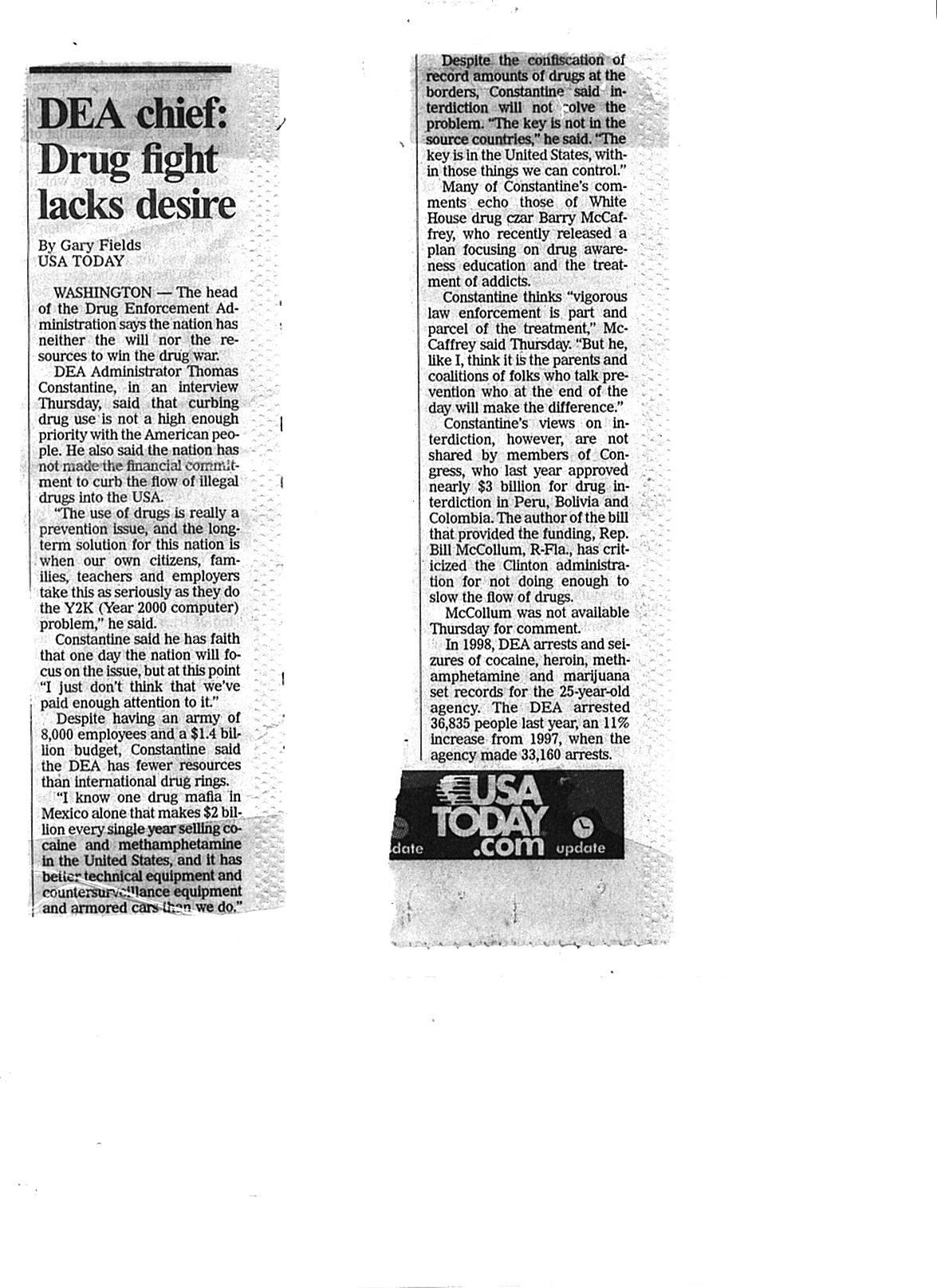DEA CHIEF: Drug fight lacks desire
By Gary Fields
USA Today (Feb. 19, 1999 domestic edition)
WASHINGTON - The head of the Drug Enforcement Administration says the nation has neither the will nor the resources to win the drug war.
DEA Administrator Thomas Constantine, in an interview Thursday, said that curbing drug use is not a high enough priority with the American people. He also said that the nation has not made the financial commitment to curb the flow of illegal drugs into the USA.
"The use of drugs is really a prevention issue, and the long term solution for this nation is when our own citizens, families, teachers, and employers take this as seriously as they do the Y2K (Year 2000 computer) problem," he said.
Constantine said he has faith that one day the nation will focus on the issue, but at this point "I just don't think that we've paid enough attention to it."
Despite having an army of 8,000 employees and a $1.4 billion budget, Constantine said the DEA has fewer resources than international drug rings.
"I know one drug mafia in Mexico alone that makes $2 billion every year selling cocaine and methamphetamine in the United States, and it has better technical equipment and armored cars than we do."
Despite the confiscation of record amounts of drugs at the borders, Constantine said interdiction will not solve the problem. "The key is not in the source countries," he said. "The key is in the United States within those things we can control."
Many of Constantine's comments echo those of White House drug czar Barry McCaffrey, who recently released a plan focusing on drug awareness education and the treatment of addicts.
Constantine thinks "vigorous law enforcement is part and parcel of the treatment," McCaffrey said Thursday. "But he, like I, think it is the parents and coalitions of folks who talk prevention who at the end of the day will make the difference."
Constantine's views on interdiction, however, are not shared by members of Congress, who last year approved nearly $3 billion for drug interdiction in Peru, Bolivia, and Columbia. The author of the bill that provided the funding, Rep. Bill McCollum, R-Fla., has criticized the Clinton administration for not doing enough to slow the flow of drugs.
McCollum was not available Thursday for comment.
In 1998, DEA arrests and seizures of cocaine, heroin, methamphetamine and marihuana set records for the 25-year-old agency. The DEA arrested 36,835 people last year, an 11% increase from 1997, when the agency made 33,160 arrests.
